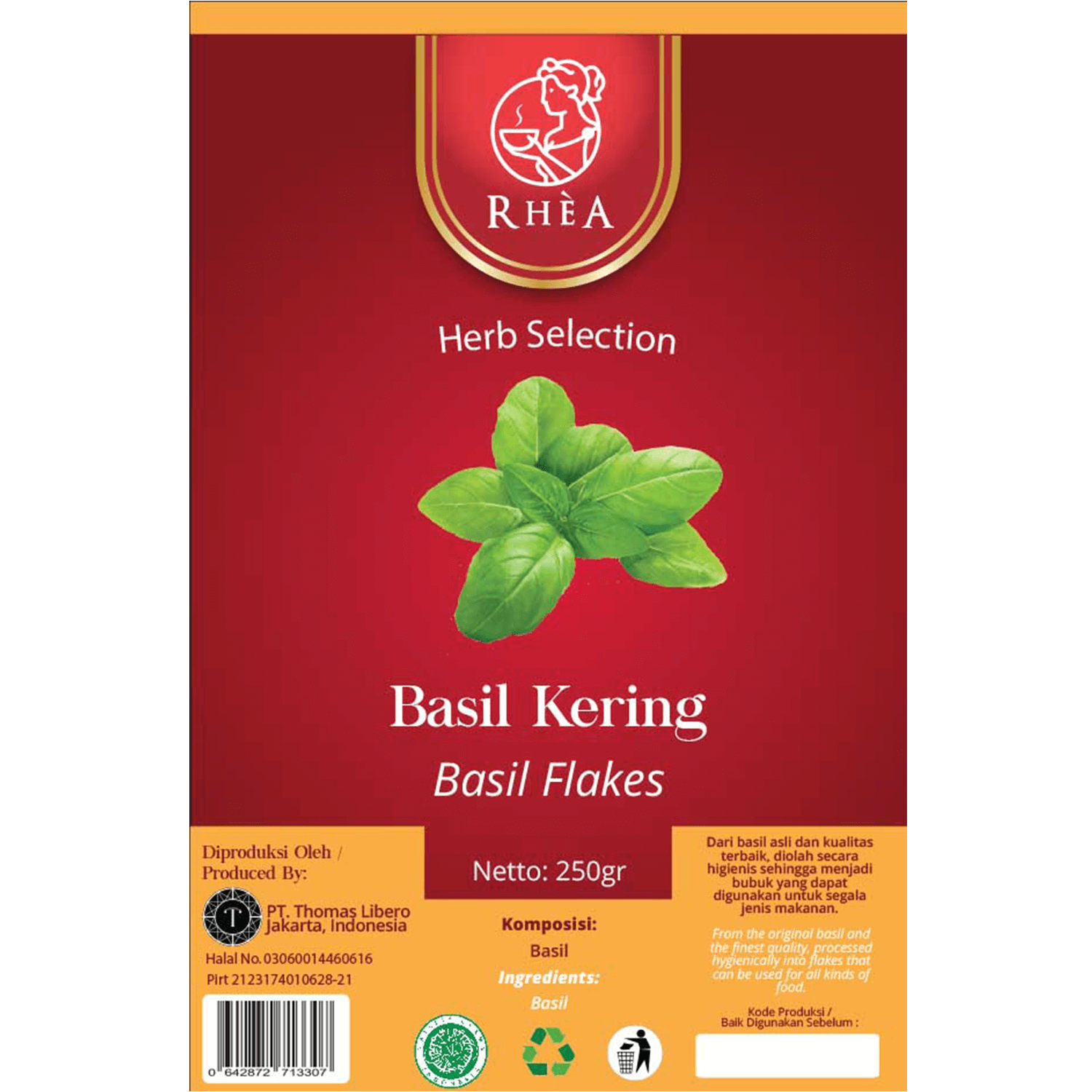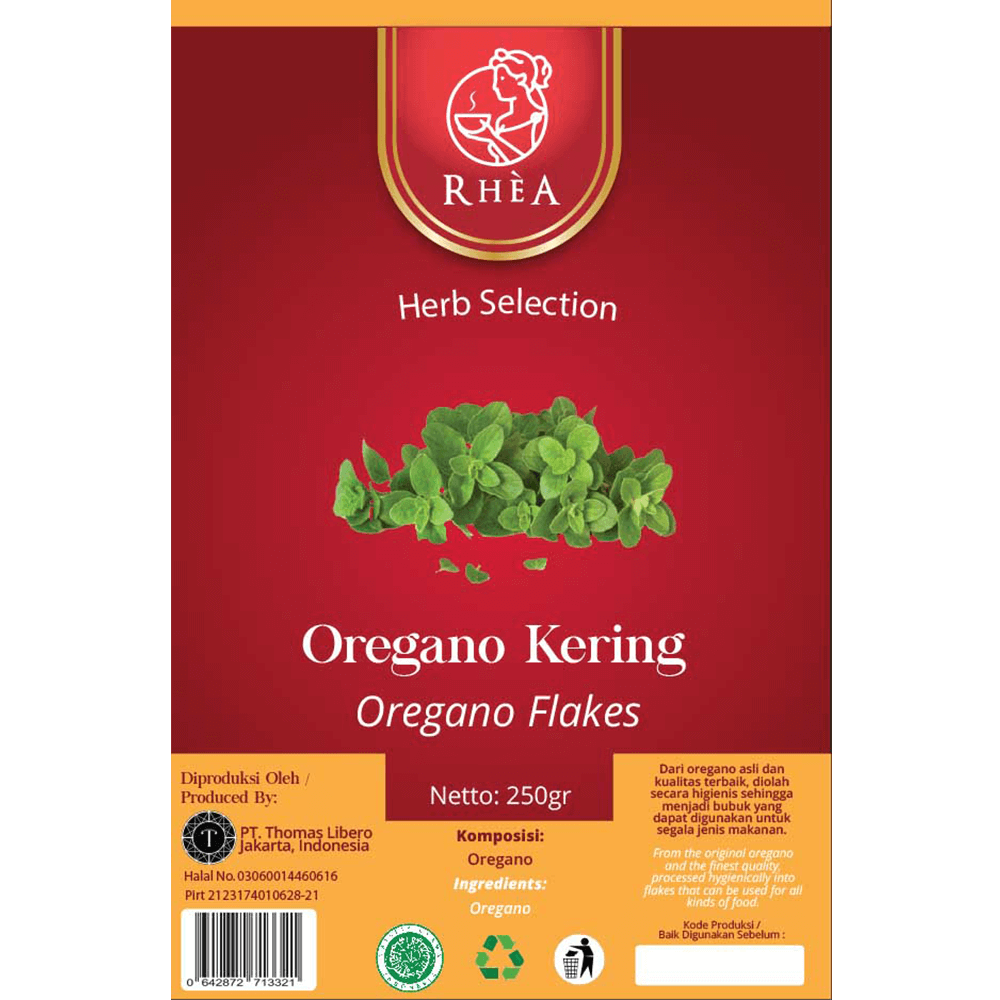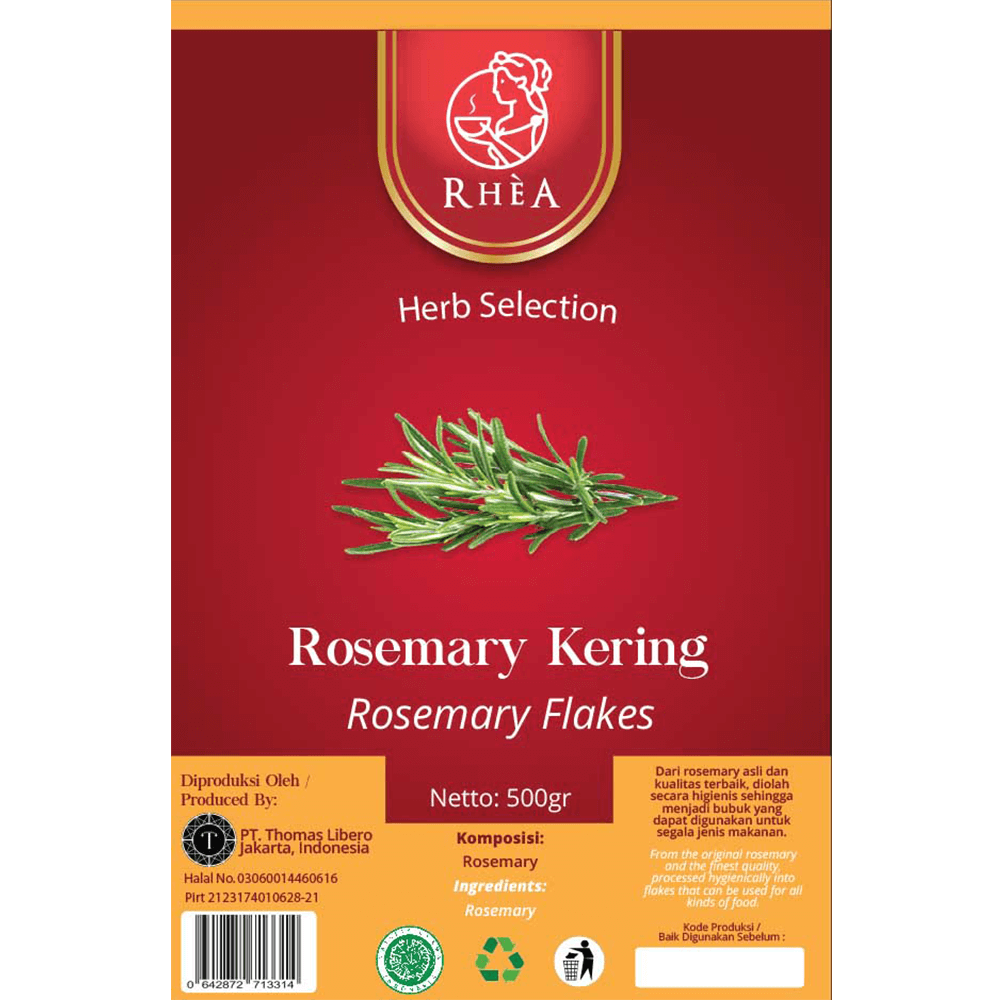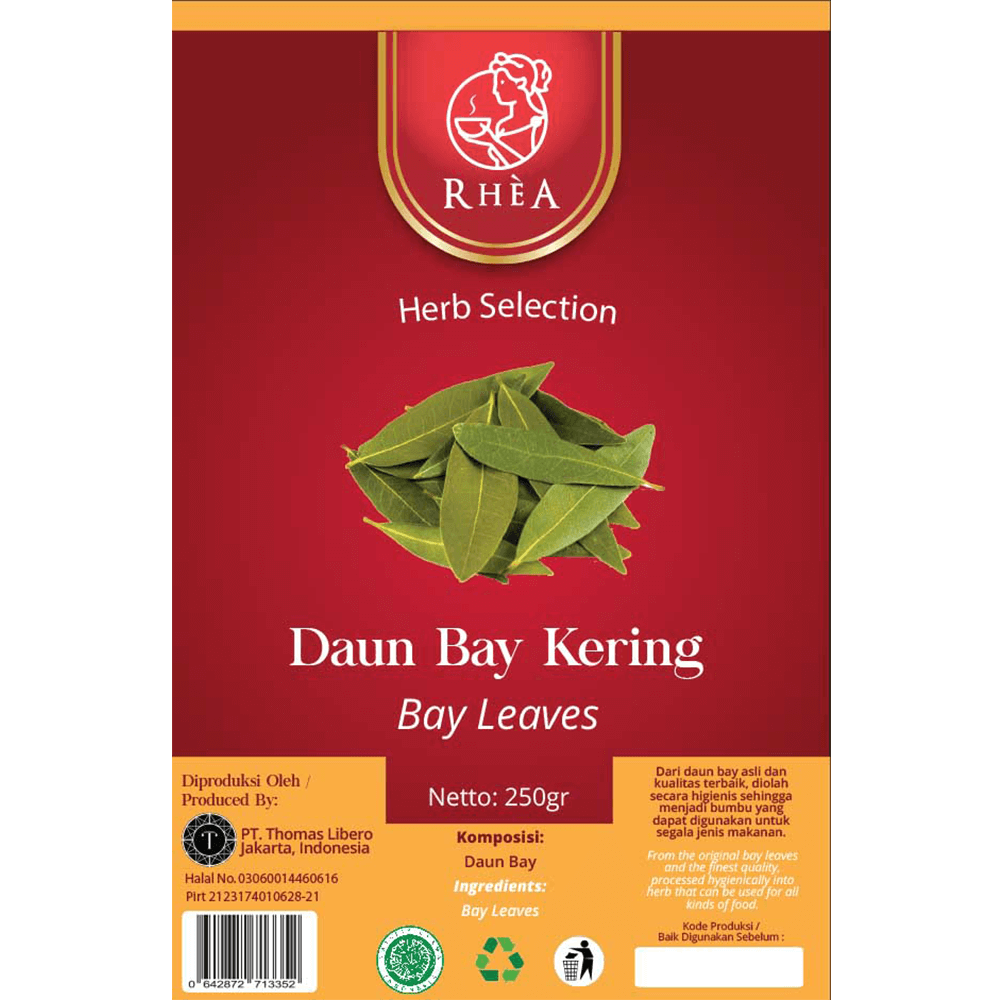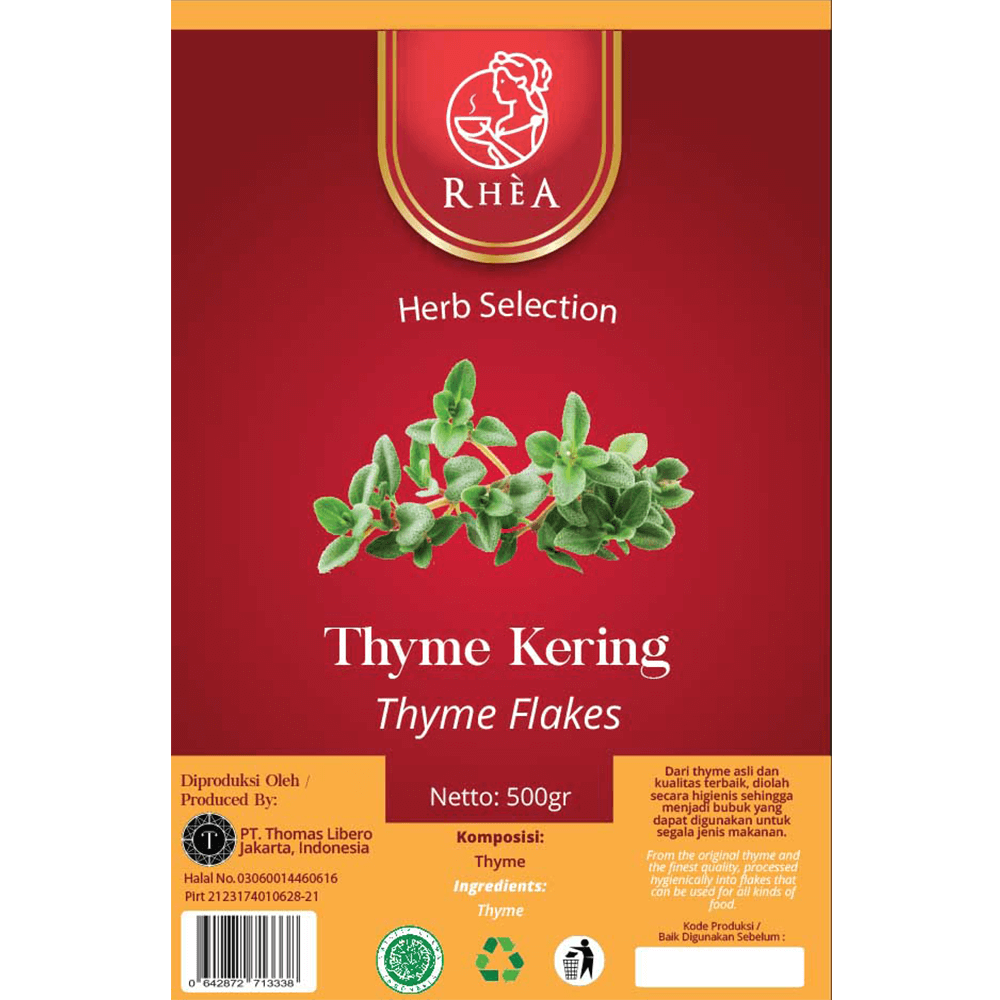
RHEA Thyme Flakes
Origin :
Ancient Egyptians used thyme for embalming. The ancient Greeks used it in their baths and burnt it as incense in their temples, believing it was a source of courage. The spread of thyme throughout Europe was thought to be due to the Romans, as they used it to purify their rooms and to "give an aromatic flavour to cheese and liqueurs". In the European Middle Ages, the herb was placed beneath pillows to aid sleep and ward off nightmares. In this period, women also often gave knights and warriors gifts that included thyme leaves, as it was believed to bring courage to the bearer. Thyme was also used as incense and placed on coffins during funerals, as it was supposed to assure passage into the next life.
The name of the genus of fish Thymallus, first given to the grayling (T. thymallus described in the 1758 edition of Systema Naturae by Swedish zoologist Carl Linnaeus) originates from the faint smell of the herb thyme, which emanates from the flesh.
Culinary Uses :
In some Levantine countries, and Assyria, the condiment za'atar (Arabic for thyme) contains thyme as a vital ingredient. It is a common component of the bouquet garni, and of herbes de Provence.
Fresh thyme is commonly sold in bunches of sprigs. A sprig is a single stem snipped from the plant. It is composed of a woody stem with paired leaf or flower clusters ("leaves") spaced ?1⁄2 to 1" apart. A recipe may measure thyme by the bunch (or fraction thereof), or by the sprig, or by the tablespoon or teaspoon. Dried thyme is widely used in Armenia in tisanes (called urc).
Depending on how it is used in a dish, the whole sprig may be used (e.g., in a bouquet garni), or the leaves removed and the stems discarded. Usually, when a recipe specifies "bunch" or "sprig", it means the whole form; when it specifies spoons, it means the leaves. It is perfectly acceptable to substitute dried for whole thyme.
Thyme retains its flavour on drying better than many other herbs.
Size Available :
20gr and 1Kg
Mesh :
3x3 mm
Tasting Notes :
Thyme gives an aromatic flavourful cheese and liquers with woody stem.
